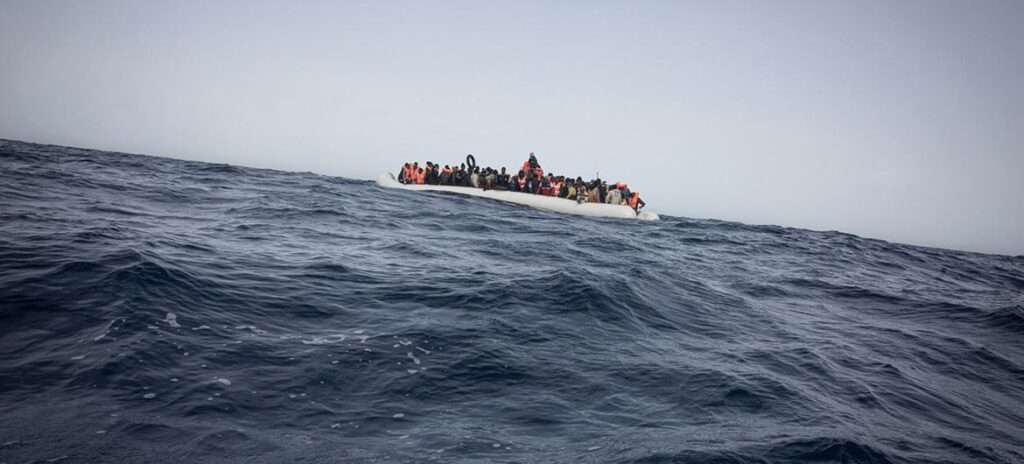Two mass graves, believed to contain the bodies of migrants, have been uncovered in Libya, highlighting the ongoing and deadly risks faced by people fleeing conflict and poverty.
The UN migration agency, the International Organization for Migration (IOM), confirmed the discovery on Monday.
Nineteen bodies were found in Jakharrah, approximately 400 km south of Benghazi, while a second grave in the Alkufra desert, in the southeast, contained at least 30 bodies. Authorities believe the second site may hold as many as 70 bodies.
The exact circumstances of their deaths remain unknown, as do their nationalities. However, IOM confirmed that some bodies bore gunshot wounds. “The loss of these lives is yet another tragic reminder of the dangers faced by migrants embarking on perilous journeys,” said Nicoletta Giordano, IOM Libya Chief of Mission.
“Far too many migrants along these journeys endure severe exploitation, violence and abuse, underscoring the need to prioritize human rights and protect those at risk.”
Nicoletta Giordano
The graves were discovered following a police raid on an alleged human trafficking site, where hundreds of migrants were reportedly rescued from traffickers. The treacherous desert routes through Libya remain a major transit corridor for smugglers transporting people to Europe.
Libyan security forces are actively pursuing those responsible for the migrants’ deaths. According to reports, one Libyan and two foreign nationals have been arrested.
IOM has urged Libyan authorities “to ensure a dignified recovery, identification, and transfer of the remains of the deceased migrants, while notifying and assisting their families.”
This is not the first mass grave linked to migrant deaths in Libya. In March 2024, authorities discovered the remains of 65 migrants in the southwest of the country.
Alarming Death Toll on Migration Routes
According to IOM’s Missing Migrants Project, Libya recorded 965 migrant deaths and disappearances in 2024. More than 22% of these occurred on land routes, revealing the often-overlooked dangers migrants face before even reaching the Mediterranean.
IOM emphasized the need for stronger data collection, search and rescue operations, and improved protection measures to prevent further loss of life. “This highlights the often-overlooked risks migrants face on land routes, where fatalities frequently go underreported,” the agency stated.
Libya has long been a major transit hub for migrants, particularly those from Sub-Saharan Africa attempting to reach Europe. Once a destination for work due to its oil wealth, Libya’s economic downturn and political instability have turned it into a key smuggling route.
In 2023, at least 8,565 people died on migration routes worldwide, marking it as the deadliest year on record. The Mediterranean crossing — often involving Libya — remains the most dangerous migration route, with 3,129 deaths and disappearances recorded in 2023 alone.
Many migrants attempting the journey drown at sea. Within Africa, a significant number of deaths occur in the Sahara Desert and along the maritime route to the Canary Islands.

The IOM has strongly criticized the lack of legal migration pathways, arguing that restrictive policies force people into unsafe conditions. “Strengthening data collection, search and rescue efforts, and migrant protection mechanisms along these routes is crucial to preventing further loss of life,” the agency warned.
Libya’s net migration rate has been declining in recent years, with a rate of -0.277 per 1,000 people in 2025, indicating more departures than arrivals. This continues a downward trend from -0.280 in 2024 and -0.283 in 2023.
The Libyan government has faced repeated accusations of human rights abuses, particularly regarding its treatment of undocumented migrants. Observers have noted that deportations often involve individuals from countries with strained diplomatic ties to Libya.
As global attention turns once again to the horrors of irregular migration, the recent discovery of mass graves serves as a grim reminder of the urgent need for stronger protections, better migration policies, and a humanitarian approach to those risking everything in search of a better life.
READ ALSO: Diana Hamilton Shares Insights Into Songwriting Process



















